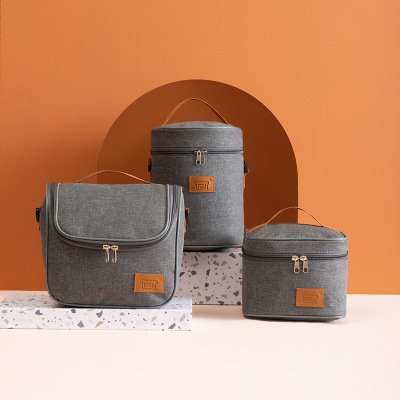Canvas bags play a crucial role in promoting ethical shopping practices and supporting sustainable consumer behavior. They align with ethical shopping practices in several ways:
- Reduction of Single-Use Plastics: Canvas bags are reusable, serving as a sustainable alternative to single-use plastic bags. Ethical shoppers prioritize reducing plastic waste, and using canvas bags helps minimize the environmental impact of disposable plastics.
- Waste Reduction: Ethical shoppers aim to reduce waste in their consumption patterns. Canvas bags encourage waste reduction by minimizing the need for disposable shopping bags and packaging materials.
- Support for Sustainable Materials: Canvas bags are often made from sustainable materials like cotton or hemp, which are biodegradable and have a lower environmental footprint compared to synthetic materials. Ethical shoppers prefer products that are eco-friendly and responsibly sourced.
- Reusable Shopping: Canvas bags are designed for repeated use. Ethical shoppers embrace reusable shopping practices, including using canvas bags for groceries, produce, and other items, reducing the need for single-use packaging.
- Promotion of Local and Ethical Brands: Ethical shoppers often support local, ethical, and sustainable brands. Many companies that produce canvas bags prioritize ethical manufacturing practices, fair labor conditions, and environmentally friendly production methods.
- Minimalist Shopping: Canvas bags align with minimalist shopping habits, which prioritize buying only what is necessary and of high quality. Ethical shoppers value products that have a longer lifespan and can replace disposable alternatives.
- Zero Waste Shopping: Canvas bags are used by ethical shoppers to practice zero waste shopping. These bags can be brought to stores for purchasing bulk items, reducing the need for packaging and plastic containers.
- Conscious Consumerism: Canvas bags serve as a visual reminder of conscious consumerism. Ethical shoppers often consider the environmental and social impacts of their purchases, and canvas bags reflect a commitment to sustainability.
- Advocacy for Sustainable Practices: Carrying canvas bags can spark conversations and raise awareness about sustainable and ethical shopping practices. It provides an opportunity to advocate for reducing waste and supporting responsible production and consumption.
- Support for Local Economies: Canvas bags can be purchased from local artisans or businesses, supporting the local economy and small-scale producers. Ethical shoppers appreciate products with a transparent supply chain and ethical production practices.
- Customization and Personalization: Canvas bags can be customized with messages or logos that reflect ethical and sustainable values. They can be used as a platform to express support for ethical causes or brands.
By incorporating canvas bags into their shopping routines, ethical consumers actively contribute to reducing plastic pollution, minimizing waste, supporting sustainable materials, and advocating for responsible and ethical practices in the fashion and retail industries. These small actions collectively have a positive impact on the environment and society.





















